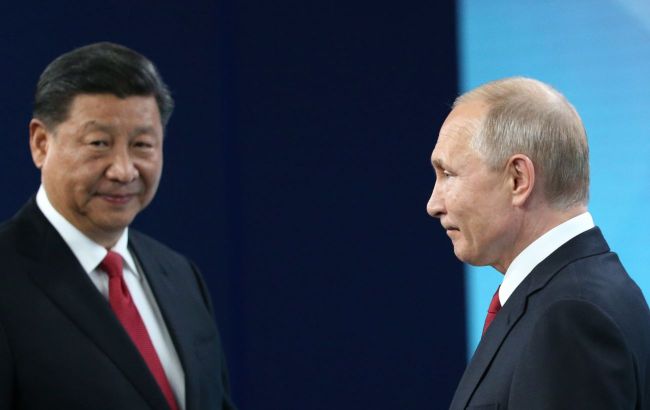Russian companies face growing challenges in securing funds from China - Bloomberg
 Leader of China Xi Jinping and Russian President Vladimir Putin (photo: Getty Images)
Leader of China Xi Jinping and Russian President Vladimir Putin (photo: Getty Images)
After the latest round of US sanctions, it has become very difficult, if not impossible, to conduct direct payments from China to Russia, even using the yuan, according to Bloomberg.
Top managers of three Russian raw material exporters told the agency that trading with China has become a risky game, as direct payments in yuan are increasingly being frozen or delayed.
"Some Chinese buyers of Russian farm goods have also been experiencing issues with payments this month," a representative of a Russian agricultural firm reported.
The problem extends beyond commodities such as metals and agriculture to other industrial sectors. Last week, the Russian Automobile Dealers Association warned that imports of vehicles and auto parts from China, currently the country's main supplier, could halt due to payment disruptions.
These delays come after the US expanded criteria in June to determine whether secondary sanctions should be imposed, broadening the definition of Russia's military-industrial base.
According to Bloomberg, since the end of last year, Russia has also faced difficulties in operations with other major trading partners, including the United Arab Emirates and Turkiye, as US pressure on creditors slows down transactions. Trade with India has also encountered obstacles as the rupee is not fully convertible.
Russia's primary trading partner
Since Russia invaded Ukraine in February 2022, China has become its top trading partner. Trade between the two countries has surged by over 60% to $240 billion in 2023, according to Chinese customs data. Russia has surpassed Germany, Australia, and Vietnam to become one of Beijing's major trading partners. Currently, around 40% of Russia's export-import payments are in yuan, comprising more than half of the value on the Russian currency market.
Impact of American sanctions
Although China did not join the West in imposing sanctions against Russia, payments between the two countries have faced hurdles since December, when the US threatened additional sanctions on banks facilitating trade with Russia's military industry. Russian companies reported to local media in June that the issue was resolved using small regional banks after Russian President Vladimir Putin met with China's President Xi Jinping in May, but the US later expanded its sanctions criteria.
"US sanctions and the threat of secondary sanctions have already led to a growing number of banks in China that do not want to make payments and foreign trade settlements with Russia," said Russian analyst Alexander Potavin.
However, those frequently encountering problems may find alternative payment methods, including cryptocurrencies or routing transactions through former Soviet republics like Kazakhstan or Uzbekistan, even if it increases costs.
"A clear collapse in imports due to lags we don’t see yet, but imports in rubles have already begun to decline," said Dmitry Polevoy, the investment director at Moscow-based Astra Asset Management, referring to payment processing delays. Import in rubles as a percentage of GDP is noticeably decreasing after recovery in 2023.
Trade is still happening, but it's certainly more expensive due to significantly increased costs of processing payments, according to Bloomberg sources.
China's support for Russia's war against Ukraine
The declaration of the NATO summit in Washington states that China has become a decisive factor contributing to Russia's war against Ukraine. In response, the Alliance called on China to cease all material and political support for Russia's military efforts. China responded to NATO's statement with criticism.

